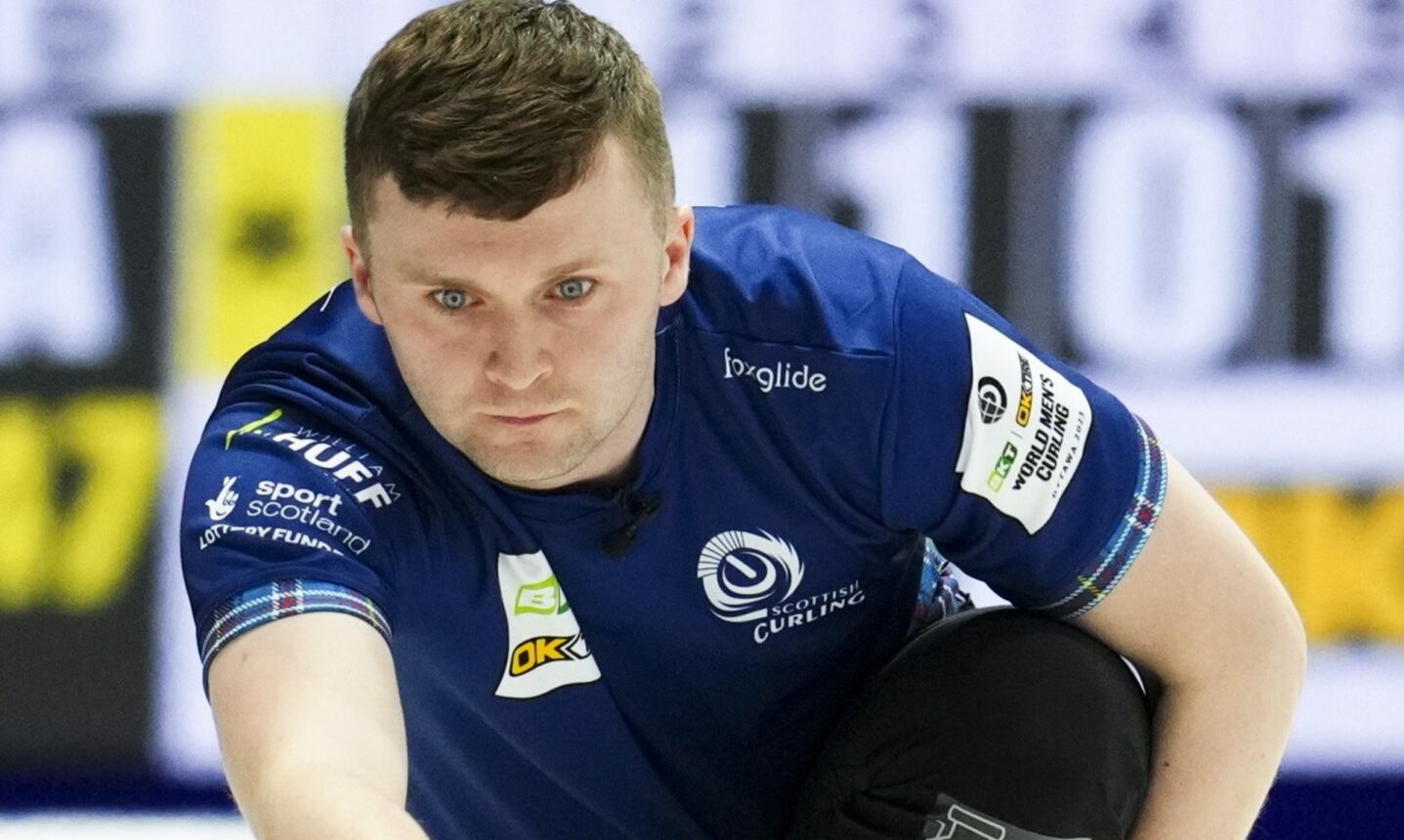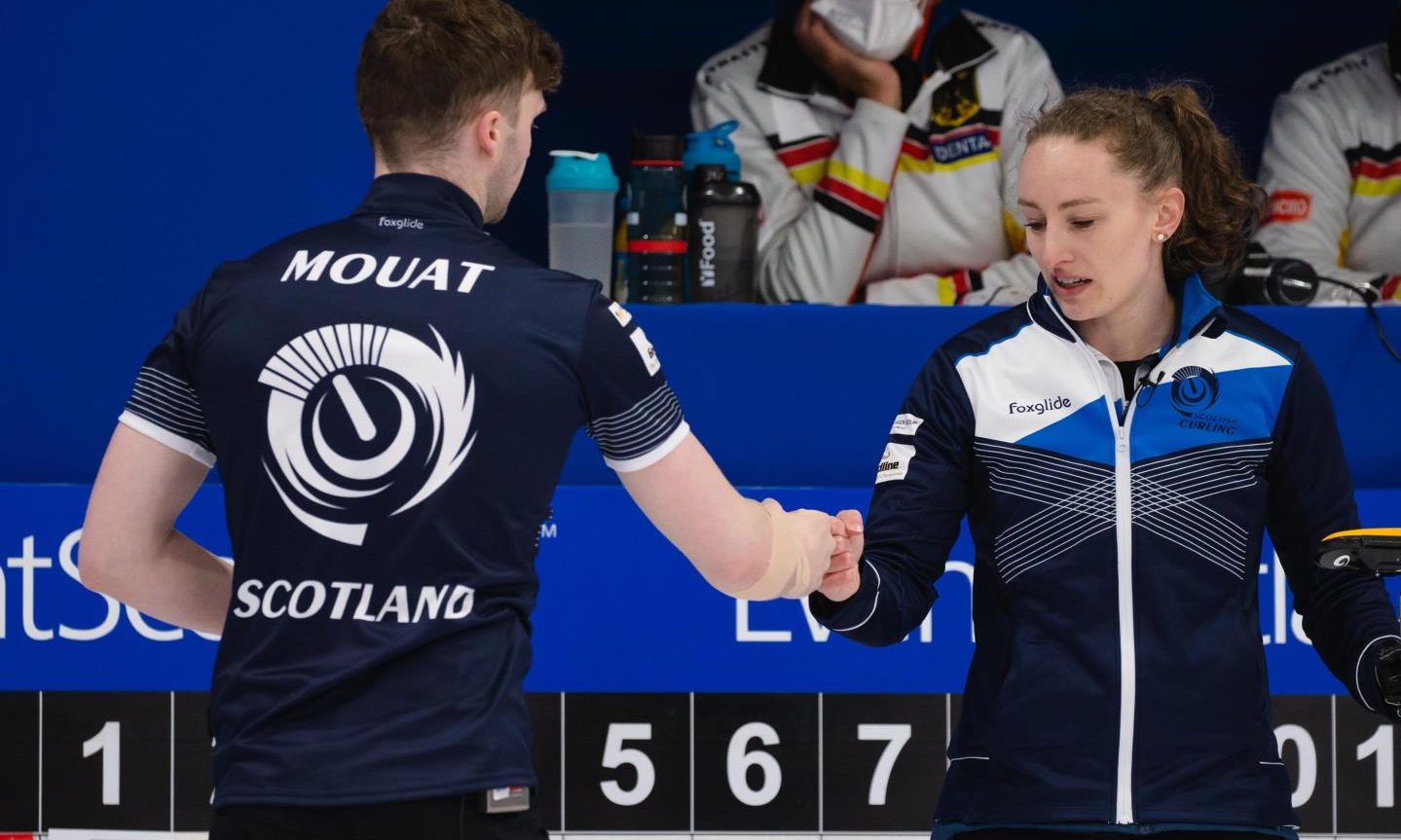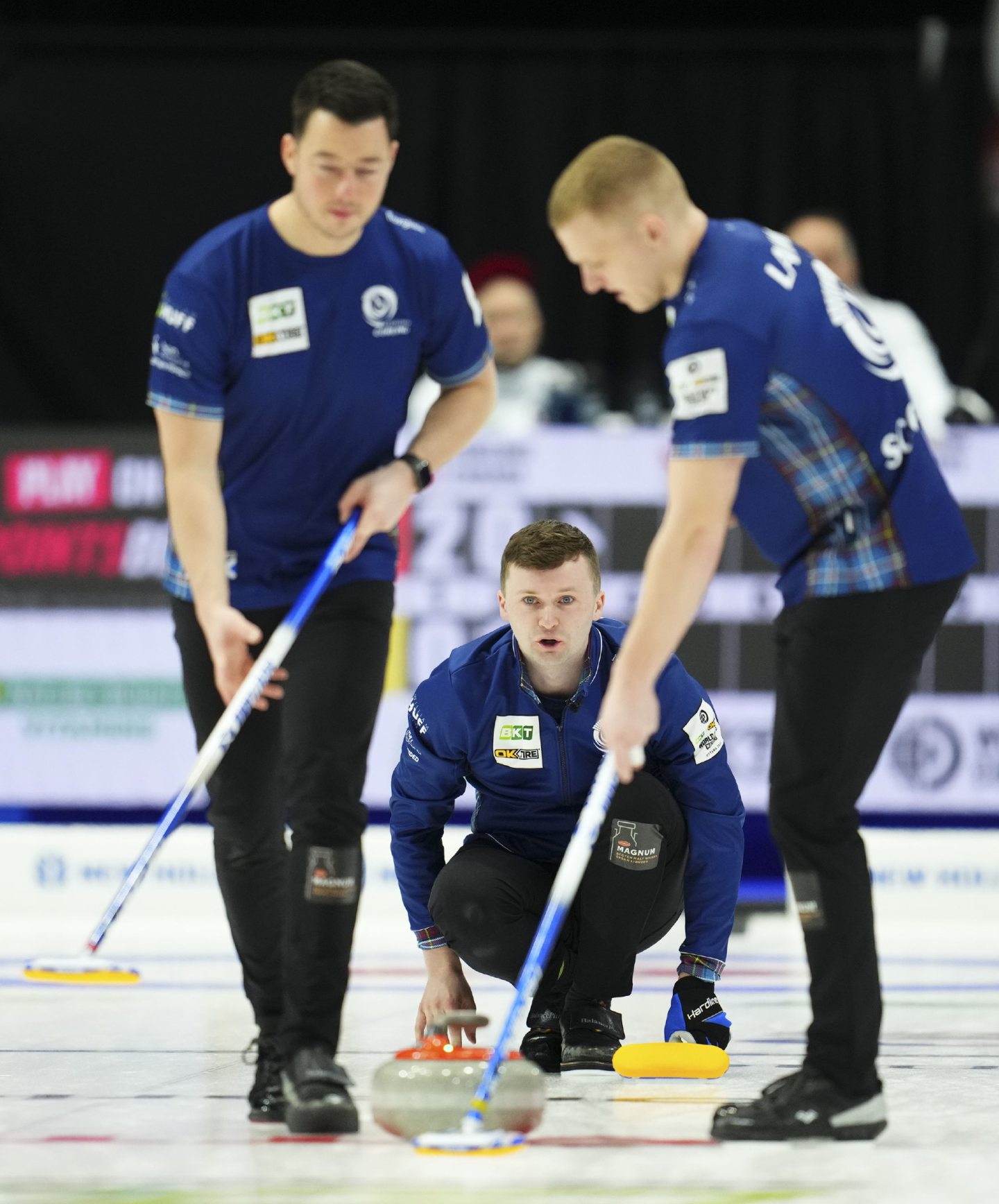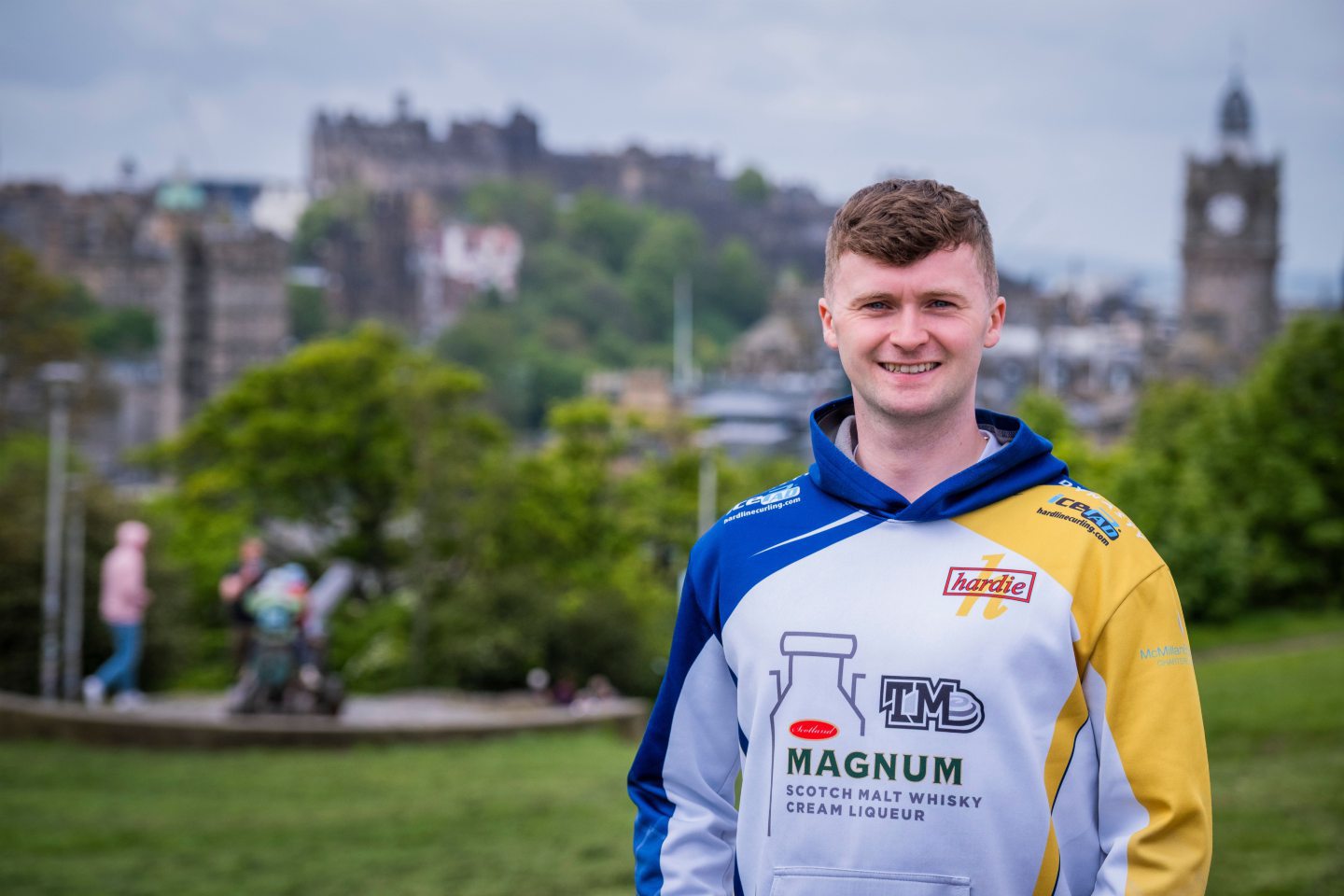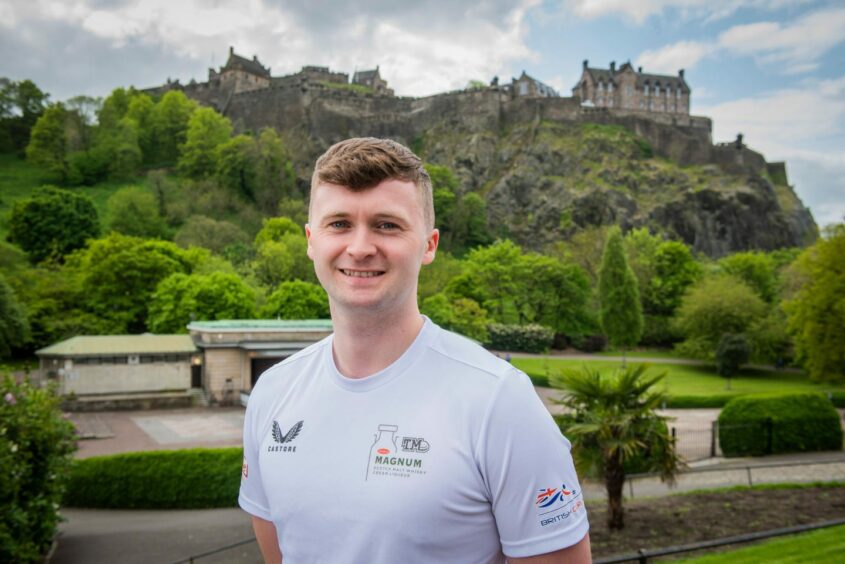
It’s one of the few sports where Scots regularly challenge for global honours and are always among the favourites, rather than making up the numbers.
And, whether you were among the hardy souls who sat up into the wee sma’ hours of a winter’s morning in 2002 to watch Rhona Martin and her team sweep to Olympic triumph or enjoyed a similar frisson of excitement when Eve Muirhead repeated the feat at the Winter Games last year, you will be aware of the lofty standards which a band of elite curling Scots demand from themselves and their peers.
Bruce Mouat has a CV which is packed with achievements and titles in different countries and continents. Still only 28, he is the reigning Scottish, European and World champion skip, he led his Team GB confreres to Olympic silver in China, and has amassed enough gold to grace a Best of Spandau Ballet collection.
Yet, despite all these plaudits, there’s never any room for resting on laurels. One might imagine that when Le Gruyere AOP European Curling Championships are staged in Aberdeen at Curl Aberdeen from November 18 to 25 this winter, that Bruce would be an automatic selection. Not a word of it.
He will have to book his place, regardless of the fact he has won the last two competitions in 2021 and 2022 (he was victorious in 2018 as well).
Ice in his veins
But he’s not complaining about the situation. On the contrary, the fashion in which the Caledonian contingent drive each other on is one of the reasons why they can hit the high notes when they need it. Quite literally, Bruce almighty has ice in his veins.
He still recalls following his compatriots’ remarkable exploits, even though he was just seven years old, and being inspired not only by Martin, but Stonehaven’s Jackie Lockhart who surged to world championship success and these were occasions which persuaded millions of viewers to huddle in front of their TV screens at 3am and beyond.
As Bruce told me: “I began curling the season before the Salt Lake City Olympics in 2002, where Rhona and her team won gold, followed a month later by Jackie and her team winning the world championship, so I remember feeling very proud that it was a sport I was playing and I started to hope it could be me one day winning these events.
So many people have helped us
“I’ve had so many people who have helped me on this journey and I have to thank all the coaches at Gogar Park Young Curlers, who helped me fall in love with the sport in the first place, all the pathway coaches I’ve had who showed me that I had the ability to go far and British Curling for the structure and support they offer me on a daily basis.
“I’m thrilled by the backing we get from sponsors such as Magnum Cream Liqueur, who believe in the boys and I and who are always supporting us throughout our season. And of course, there are my parents who let me dream that this could be possible.
“The journey which the boys and I have been on during the past two years has been incredible. We have worked really hard, since starting as a team, to get to this level, and so seeing it starting to pay off with the Olympic medal and now a World Championships title….well, it makes me extremely proud.
“We still have things we want to achieve so, hopefully, this journey isn’t over yet.”
Their exploits have been even more uplifting because they travelled to Ottawa for their world bid, which is rather like journeying to Brazil or New Zealand if you’re a Scottish footballer or rugby player. But that’s one of the terrific qualities of these curling maestros. They have all the resilience and tenacity to match their technical expertise.
They also have some impressive facilities in Scotland, although that’s a thornier subject.
Closure of facilities
Until recently, it seemed that investment in sport was reaping a healthy dividend, whether in producing elite swimmers, athletes, curlers and rowers or encouraging youngsters to simply enjoy these pursuits – and others – whether or not they had any ambitions to chase prizes or even contemplate becoming professionals.
Sadly though, in the midst of a cost-of-living crisis, and with council budgets stretched to breaking point, many local authorities have decided that sport and arts are easy targets for the axe. In Aberdeen alone, libraries and a pool have been closed, while ice rinks have fallen victim to cuts in other parts of the country.
Even a venue such as Dewar’s rink in Perth – which used to host televised events – was placed at risk in recent months. And, while it has gained a reprieve, Bruce isn’t the only person who is anxious about the moves to shut places which are community havens.
‘Club curling is a huge part of our community’
He said: “It is very concerning that ice rinks are struggling so much that they don’t even think they can open their doors anymore.
“Curling is a sport that can be accessed from the age of seven through to 70 so it’s going to impact people of all ages. Club curling is a huge part of our community, it is where the grassroots programmes start for the kids and anyone else wanting to play the game.
“I do fear that many young people won’t get the opportunity to try curling and continue the strong history of Scotland success at international level.”
Nothing is left to chance on the modern circuit. Bruce told me how a typical day as a professional curler involved three sessions, usually one in the gym, either in strength or conditioning, and two on the ice, both working as a team and as individuals.
There is a lot of other activity which highlights how much science surrounds the life of an Olympic athlete, whether dealing with nutritionists, physiotherapists, performance lifestyle coaches, sport psychologists or data analysts.
This, after all, is a realm where matches can last for upwards of three hours and where there is nowere to hide, particularly once the best are in action against one another.
We still have to gain our place
As matters stand, it would be surprising if Bruce wasn’t in Aberdeen in three months’ time, but while he would welcome a return to the city of granite – which has a particular affinity with those who roll curling stones – he realises that it’s not a done deal.
He said: “We will find out about the Europeans [selection] in October, but the boys and I are obviously hoping we are the team that plays in a home European championships.
“The last opportunity we had to play as a four in a home championships was in April 2020 which obviously got cancelled [because of the Covid pandemic], so it would mean a lot to us all to come back here again.
“I have competed in Aberdeen in a lot of tour events, but only once in a major competition – the World Mixed Doubles Championships in 2021 – with Jen Dodds. We had a lot of success there [they won] so I would hope to be able to re-create that.”
Bruce Mouat could probably walk down Union Street without anybody giving him a second glance. But he is one of the country’s most extraordinary athletes and perhaps it’s time that more focus was placed on how these curlers are reaching places which other Scottish sporting luminaries can only dream about.
FIVE QS FOR BRUCE MOUAT
What book are you reading? I recently finished ‘The House in the Cerulean Sea’ by T J Klune.
Who’s your hero/heroine? Scottish sporting legend, Andy Murray, for his amazing talent, sense of humour and his dedication to his sport.
Do you speak any foreign languages? I studied German at school for five years, but I would say I’ve lost 99% of it by this stage. So the answer is no.
What’s your favourite music or band? I could listen to Adele sing all day long. I love her music, but I also admire her sense of humour.
What’s your most treasured possession? It has to be the Olympic medal, it is pretty cool to hold, but it also symbolises all the hard work it took to get to that level in sport.
